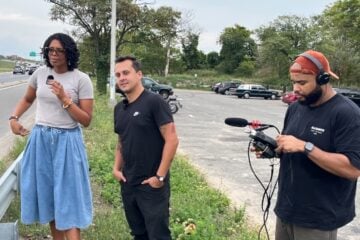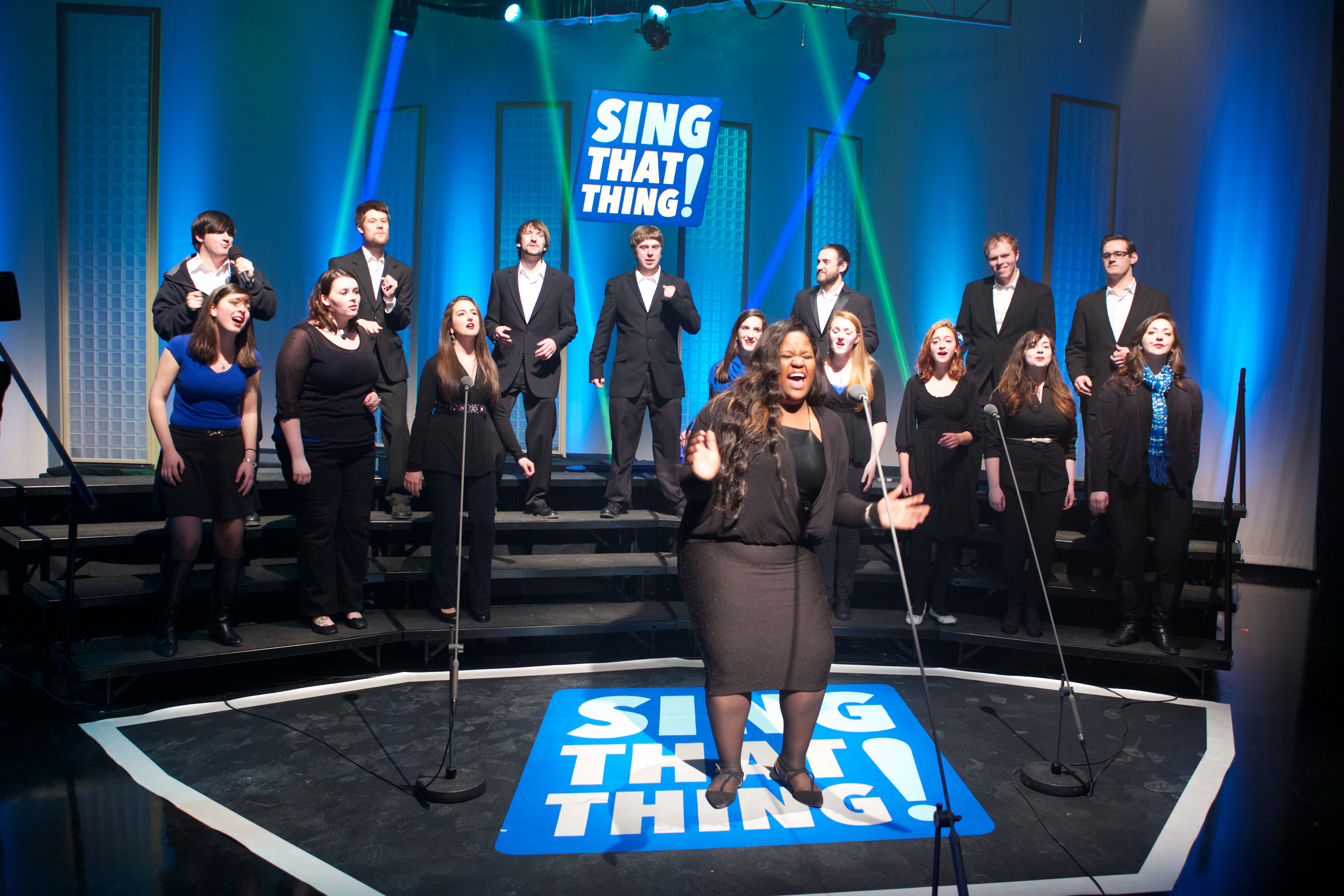Journalists behind Ag & Water Desk aim to reframe coverage of climate-change impact along Mississippi River Basin
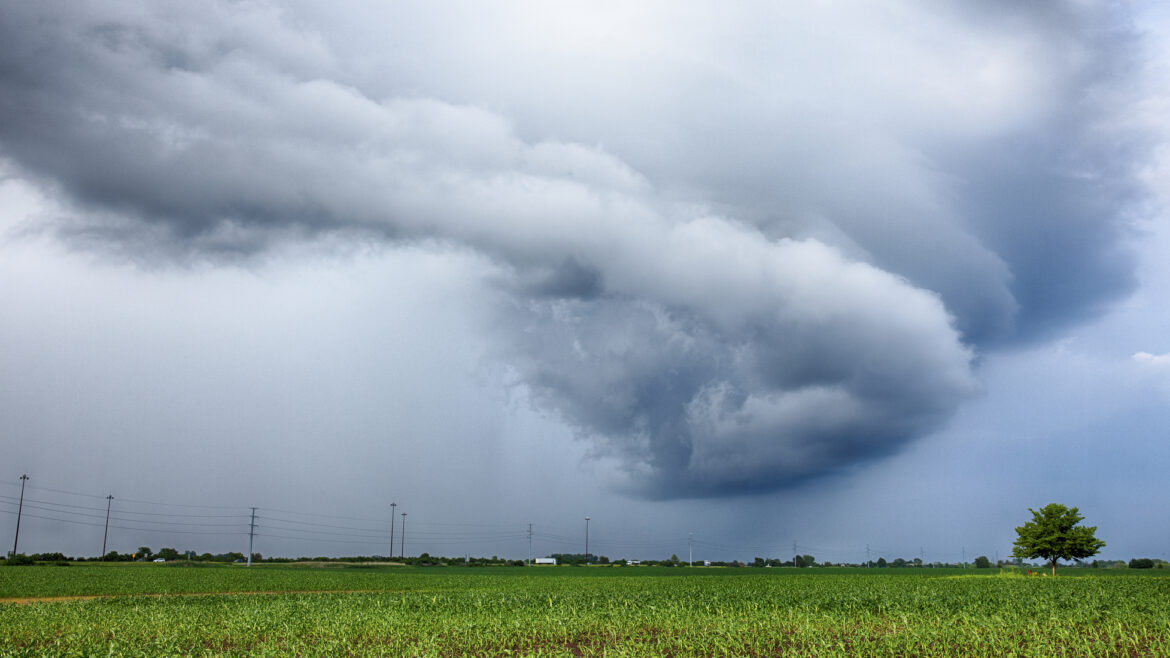
searagen / iStock
A swirling storm cloud spins over a corn field in central Illinois.
In the time that Tegan Wendland has lived in New Orleans, she has seen three tornadoes rip through the city. As a reporter for NPR News station WWNO, she covered her first in 2017 and another in 2020.
But during the most recent twister in March, she had moved on from reporting breaking news to planning long-term environmental coverage for the region.
Wendland grew up on a small subsistence farm in Wisconsin and spent seven years as a journalist in New Orleans and Baton Rouge, La. Those experiences shaped her point of view and will guide the direction of the Mississippi River Basin Ag & Water Desk.
“Living in one of the most precarious places in the nation makes me acutely aware of the experiences that many thousands of people across the country are having right now — the direct personal experience that they’re having with the impacts of a changing climate,” Wendland said from her home in New Orleans.
As editorial director of the Ag & Water Desk, a collaborative reporting project based out of the University of Missouri School of Journalism that will launch this summer, Wendland and her team will examine agricultural and environmental issues from the Upper Midwest down to the Gulf of Mexico.
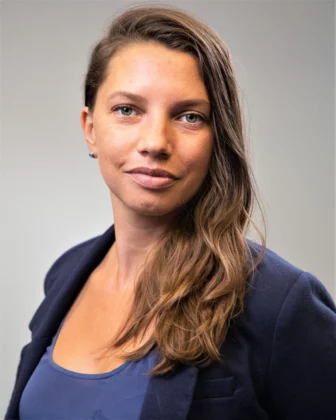
The collaborative has recruited five expert journalists to serve as advisors and will build a distribution network to share stories with newsrooms around the country. In a recent article for the Columbia Journalism Review, Wendland highlighted the challenges of sharing those stories across newsrooms that operate incompatible distribution and editing systems.
A recent grant from the Reynolds Journalism Institute will help the desk build its distribution network; some of the funding will be used to purchase the Associated Press’ StoryShare, a password-protected tool that shares high-resolution images, videos and text. Wendland hopes to give Ag & Water’s essential coverage to news organizations for free, but she noted the perfect sharing tool doesn’t exist yet.
“Some of our newspapers might not even have websites. … They might just have a print edition,” she said. “But hopefully we’ll be able to reach a wide range of outlets and make it easier on their end by offering so many options.”
Mizzou’s School of Journalism partnered with Report for America to assign ten reporters to newsrooms across the region including WNIJ in DeKalb, Ill., and Harvest Public Media, the public media journalism collaborative based at KCUR in Kansas City, Mo. A $1.4 million, three-year grant from the Walton Family Foundation supports staff costs, including Wendland’s role as editorial director, the Report for America corps members and Executive Director Sara Shipley Hiles, an associate professor at Mizzou. The foundation previously funded environmental journalism initiatives such as the Louisiana coastal reporting team at The Times-Picayune | The New Orleans Advocate and the Water Desk out of the University of Colorado.
Shipley Hiles is also intimately familiar with the challenges facing farmers who work the land along the Mississippi River Basin. She grew up on a commercial hog farm in Missouri that her family started from scratch in the 1980s, the dawn of consolidated farm operations. That upbringing helped her understand how farming is a lifestyle and a point of pride for many families, she said.
“One thing that I feel is really important is not to frame the work we’re doing as farmers versus environmentalists. I never want to see that headline or that framing on the story because I don’t think that’s accurate and it’s not helpful, either,” she said. “We need to understand that people who farm very much care about the environment. People who identify as environmentalists also care about farming, and they care about where their food comes from.”
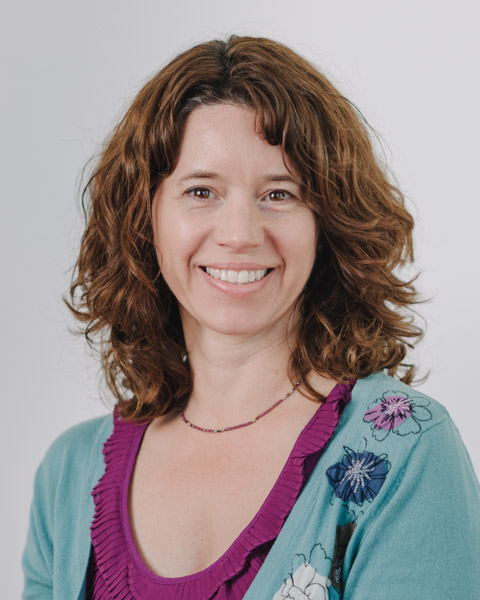
Earlier this week, Shipley Hiles held a call with the desk’s team of journalists to plan stories. The collaborative will tackle agricultural and water issues that affect communities in the basin, such as increased precipitation, a consequence of climate change that’s causing more runoff from farm fields to flow down the Mississippi River into the Gulf of Mexico.
Wendland and Shipley Hiles highlighted the dead zone, a 6,334 square-mile hypoxic area spanning the gulf where fish and marine life are suffocating from lack of oxygen, as an existential problem caused by nutrient runoff.
Despite the looming crisis in Louisiana’s waters, few newsrooms in the state have a reporter dedicated to the environmental beat. WWNO reporter Halle Parker, one of the collaborative’s expert journalists, is one of them. She’s covered environmental justice and reported on communities that are vulnerable to climate change. In her role at the desk, she’ll advise reporters on best practices for speaking with people from communities undergoing trauma, she said.
Parker hopes the funding from the desk will boost her ability to dig into issues that don’t stop at state borders, like energy-grid reliability. Even as she scrutinizes environmental issues, she wants her stories to provide solutions as well.
“At least then there’s more of an action … to give people something to latch onto,” she said. “A little bit more than just seeing that it’s all doom and gloom.”



